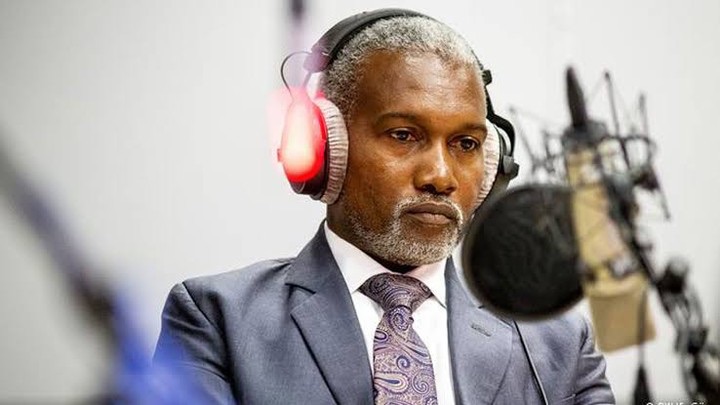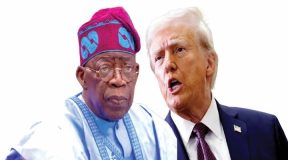The Minister of Foreign Affairs, Amb Yusuf Tuggar, has said the United States is mounting pressure on African countries to accept Venezuelan deportees, stating that it would be difficult for Nigeria to do.
The minister also clarified that the fresh 10 per cent tariffs imposed on Nigeria by President Donald Trump’s administration may not have anything to do with President Bola Tinubu’s meeting with BRICS nations.
Tuggar stated this on Friday evening, during a One-on-One interview on Channels Television’s Politics Today.
“The issue of tariffs may not necessarily have to do with us participating in BRICS.
“You have to also bear in mind that the US is mounting considerable pressure on African countries to accept Venezuelans to be deported from the US, some straight out of prison.
“It will be difficult for a country like Nigeria to accept Venezuelan prisoners into Nigeria. We have enough problems of our own.
“We cannot accept Venezuelan deportees to Nigeria, for crying out loud. We already have 230 million people. You will be the same people that would castigate us if we acquiesce to accepting Venezuelans from US prisons to be brought in,” he said.
US President Donald Trump, on Wednesday, met with five West African Presidents of Gabon, Guinea-Bissau, Liberia, Mauritania and Senegal at the White House, Washington, D.C., excluding President Tinubu.
Trump also announced a 10 per cent tariff on Nigerian goods exported to the US, as many believed this was coming following President Tinubu’s visit to Brazil to participate in the BRICS summit, after Trump’s threat.
On Tuesday, the US Embassy in Nigeria also announced visa restrictions for Nigerians as it effected single-entry three-month visa validity.
Tuggar, however, said the tariff hike and other sanctions may not necessarily be a result of Nigeria becoming a partner member of BRICS.
“You have to also bear in mind that the US is mounting considerable pressure on African countries to accept Venezuelans to be deported from the US, some straight out of prison.
“It will be difficult for a country like Nigeria to accept Venezuelan prisoners into Nigeria. We have enough problems of our own.
“We cannot accept Venezuelan deportees to Nigeria, for crying out loud. We already have 230 million people. You will be the same people that would castigate us if we acquiesce to accepting Venezuelans from US prisons to be brought in,” he said.
US President Donald Trump, on Wednesday, met with five West African Presidents of Gabon, Guinea-Bissau, Liberia, Mauritania and Senegal at the White House, Washington, D.C., excluding President Tinubu.
Trump also announced a 10 per cent tariff on Nigerian goods exported to the US, as many believed this was coming following President Tinubu’s visit to Brazil to participate in the BRICS summit, after Trump’s threat.
On Tuesday, the US Embassy in Nigeria also announced visa restrictions for Nigerians as it effected single-entry three-month visa validity.
Tuggar, however, said the tariff hike and other sanctions may not necessarily be a result of Nigeria becoming a partner member of BRICS.
The minister also said accepting Venezuelan deportees into Nigeria may only be the beginning, adding that it would be unfair for the US to insist on Nigeria’s acceptance.
“The issue of accepting Venezuelan deportees, honestly, I don’t think is something that Nigeria is in a position to work with.
And I think it would be unfair to insist that Nigeria accepts 300 Venezuelan deportees. Maybe that might just even be the beginning,” Tuggar said.
He also addressed the new visa policy by the US, noting that the claim that the new policy was based on reciprocity was false.
The minister explained that Nigeria operated and issued a 90-day visa policy, the same as the US, stating that the only difference was that Nigeria had introduced electronic e-visas to save time.
“We are talking to the Americans. We are engaging them. We are also explaining and reminding them that we issue them five-year multiple entry visas, the same way that they issue regular travellers five-year multiple entry visas.
“What Nigeria has done that differs is simple. We used to have a visa-on-arrival that wasn’t running efficiently.
“We introduced these online electronic visas that you can apply for so that it saves you time, instead of just arriving and then going through the process of getting the visa when you have already arrived.




